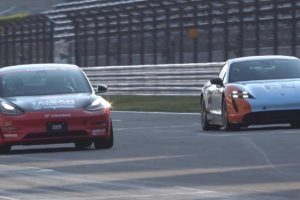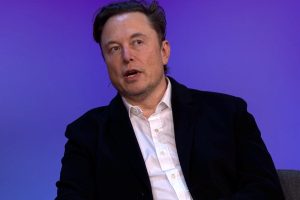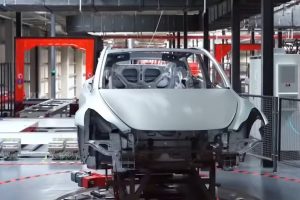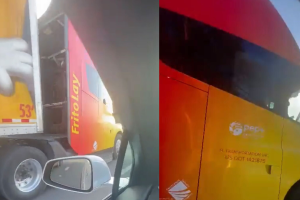Key Points
- 🚗 Tesla Summon is a feature that allows owners to retrieve their cars using their phones, and it operates without a human in the car.
- 🛑 If a Tesla using Summon runs a stop sign, the owner operating the Summon feature is liable for the infraction.
- 🏢 In the case of an infraction on private property, like a parking lot, police officers may not be able to issue tickets due to the property’s private status.
- 🚦 The responsibility for ensuring a self-driving or autonomous vehicle obeys traffic laws still lies with the vehicle owner, even if there is no human driver.
Tesla Summon runs a stop sign, but since there is no human in the car when the functionality is active, who gets the ticket?
A lawyer on TikTok recently explained the infraction, including how the ticket would be given and, at least in this instance, how the owner of the vehicle avoided a fine altogether.
Tesla Summon is a feature that allows an owner to retrieve their car, usually in a parking lot, all by using their phone. It uses GPS location on the owner’s phone to pinpoint a pickup location and then travels to that spot slowly.
It is a useful trick in rainstorms and in busy parking lots, and we’ve seen its effectiveness on several occasions since it was released.
But as the development of semi-autonomous and fully autonomous functions continues, there are still some questions about who would be responsible for the infractions a vehicle may commit, including this vehicle in particular, which ran a stop sign in a parking lot.
UgoLord, a notable TikTok figure that explains liability in everyday situations, recently explained how Tesla Summon running a stop sign could be ticketed.
In a video showing notable Tesla owner and racer Brooks Weisblat of the DragTimes YouTube channel summoning his Model 3 in a parking lot, his vehicle moved through a stop sign without coming to a halt, which then made a police officer pull the vehicle over.
However, Summon does not require a human to be in the driver’s seat, so who is liable? UgoLord explains that the owner of the car, who is operating the Summon feature, would be liable.
“Even in an autonomous, self-driving vehicle, it is still the owner’s responsibility to ensure that the vehicle obeys all traffic laws,” UgoLord said.
But this situation is slightly different, and it isn’t due to anything with the vehicle, but rather the type of property this instance occurred on.
A parking lot of this nature is private property, which would technically disqualify the police officer from giving Weisblat a ticket of any kind. Since it is private property, it is not subject to the laws of public roads, UgoLord explains.
Weisblat cannot be given a ticket due to this.
It will be interesting to see how the development of autonomous vehicles will affect traffic laws and applicability in the future. Will people who have fully autonomous vehicles be held responsible for their car’s traffic violations in the future? This is an especially relevant question as companies will eventually solve self-driving and be labeled as Level 5 according to the SAE’s automation levels, which would allow people to sleep while their car does all the work.





